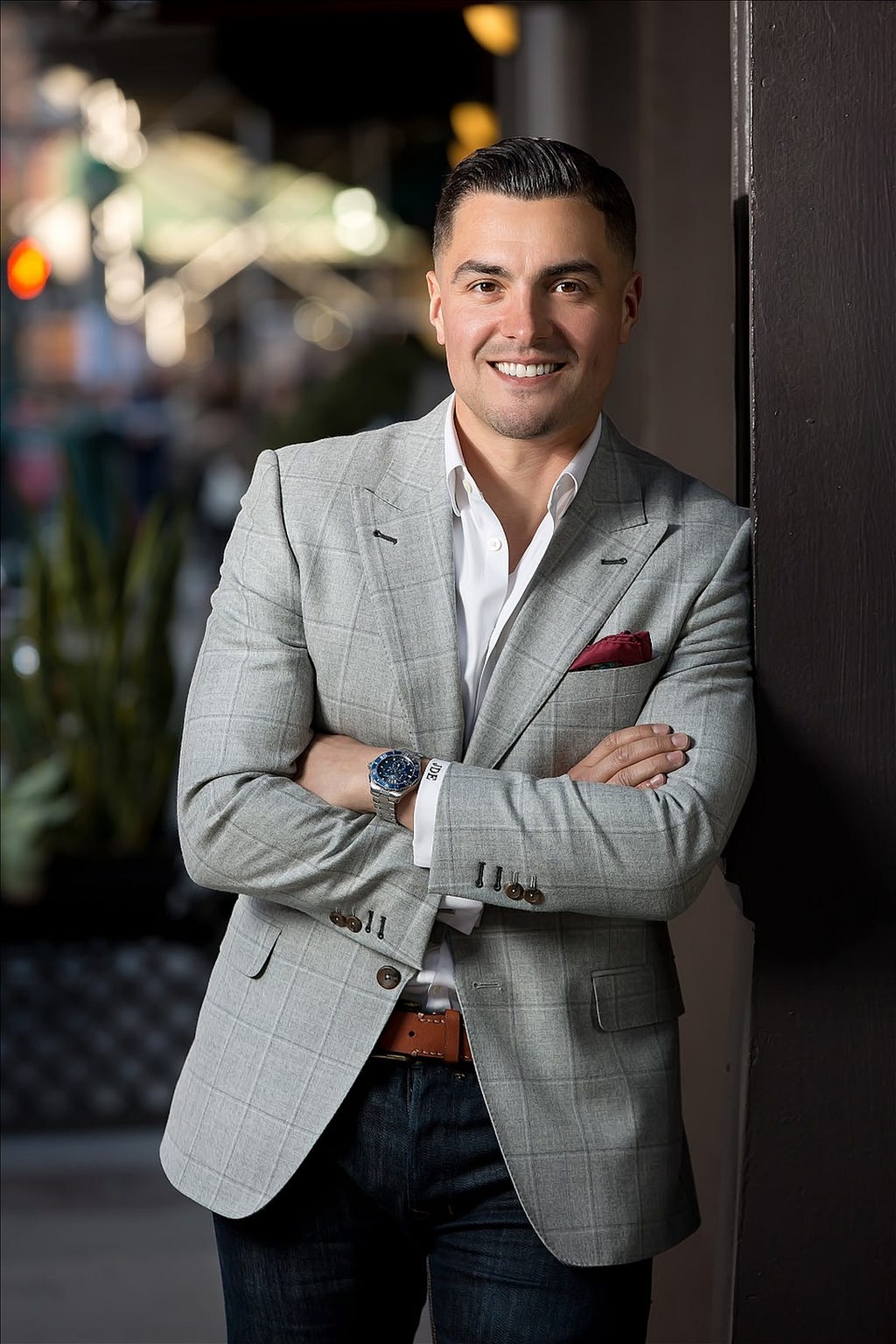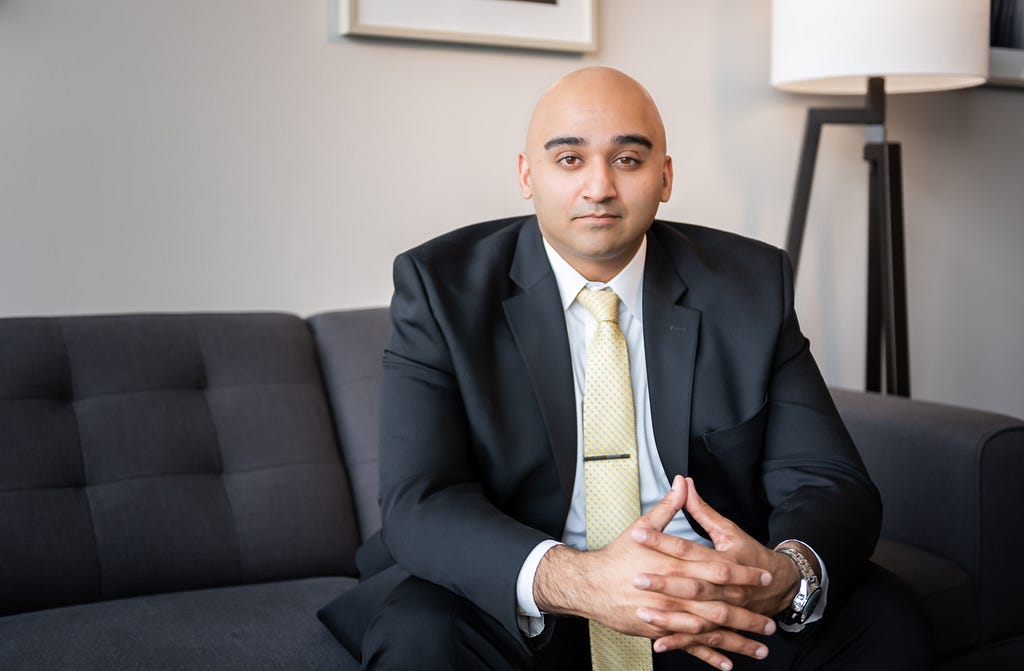The Future Of Travel: “The new standard of luxury is not bigger, better guest rooms it’s memorable & unique travel experiences” with Javier Egipciaco and Candice Georgiadis

The new standard of luxury is not “bigger, better guest rooms,” it’s memorable, unique travel experiences. Travelers don’t want to stay in their rooms — they want to be out exploring. We’re addressing the shift toward experiential travel with this programming.
As part of my series about “exciting developments in the travel industry over the next five years”, I had the pleasure of interviewing Javier Egipciaco, Managing Director and Senior Vice President for Arlo Hotels. Javier brings more than 20 years of New York hospitality experience to his position at Arlo Hotels, an independent collection of four-star lifestyle hotels, where he manages the operations of all properties, and is overseeing the development of the brand into additional markets. Prior to joining Arlo, Javier was with Hersha Hospitality, a management, investment and development firm in the hospitality sector, where he served as the Corporate Director of Operations for the Independent Collection Hotels. In this role, Javier specialized in the development and implementation of brand-wide initiatives for HHM’s curated portfolio of independent properties. He has also held various leadership and operational roles with Park Hyatt, where he began his hospitality career.
Thank you so much for joining us! Can you tell us a story about what brought you to this specific career path?
I didn’t really choose a specific role, I just knew I wanted to be in hotels. I would have taken whatever position I was offered at the time. Someone advised me I should start as a bellman to truly understand service culture from the very beginning of the guest experience, which is probably one of the best pieces of advice I have ever received. I preach that it’s all about service at every level of hospitality, and even after moving up through the ranks, I can say that this key learning has stuck with me from my first job as a bellman.
Can you share the most interesting story that happened to you since you started your career?
Checking in celebrities was always fun! The best “how did I get here” moment came early in my career when I accepted a position as a front desk agent with The Stanhope, an iconic hotel on the Upper East Side, only to find out they were selling the hotel six months later. The buyer? Hyatt Hotels & Resorts. From then on, I was surrounded by the best in the business, developed long-lasting skills, and found lifelong mentors. This experience jump-started my career path in management and I never looked back.
Can you share a story about the funniest mistake you made when you were first starting? Can you tell us what lesson you learned from that?
I once put the wrong piece of luggage in a cab for a guest! This was funny to me and some peers around me, but not funny to the guest. I personally had to drive out to LaGuardia Airport, retrieve the luggage, and deliver it to the guest at JFK Airport. Fortunately, I got it to them before their flight left. Lesson learned — check the names on luggage tags!
What do you think makes your company stand out? Can you share a story?
This sounds cliché but I would say it’s the culture we create daily. Remaining accessible in any role is important. Sharing stories like I am with you now grounds people and shows we’re human and approachable. It has to be organic though. Our core values were created by the people for the people. I love what I’m doing and everyone knows it; the hope is that this energy is contagious and continues to motivate people to be the best person they can be while working on our team.
Which tips would you recommend to your colleagues in your industry to help them to thrive and not “burn out”? Can you share a story about that?
Tomorrow is another day. Keep things simple. If you find yourself working 50 to 60 hours a week, then something is wrong. Work life balance is critical to high performance. It’s the quality of hours worked, not quantity, that’s important. Take a breather when work gets the best of you, because the work will always be there when you get back!
None of us are able to achieve success without some help along the way. Is there a particular person who you are grateful towards who helped get you to where you are? Can you share a story?
Yes. Several actually. I believe having one or two great mentors is essential, however, I’m lucky enough to attribute my success to several people who truly impacted my management style and overall outlook on the hospitality industry. One of the critical small snippets of advice? Sometimes the best emails are the ones that aren’t sent. Think about that a little and you’ll get it.
Let’s jump to the core of our discussion. Can you share with our readers about the innovations that you are bringing to the travel and hospitality industries?
We’re pushing the boundaries of what hospitality means. Whereas hotels used to be a uniform, somewhat sterile experience, the industry is responding to the influx of “millennial-minded” travelers who crave unique, memorable experiences. Arlo puts a huge emphasis on our high-design public spaces, and activating them to draw in guests as well as locals. We also take pride in our local outreach. We bolster local entrepreneurs looking for a place to showcase their skills or business. By bringing them into our hotels and hosting panels, live music events, culinary showcases, mixology classes, etc., we’re giving travelers a one-of-a-kind experience while also remaining an active member of our neighborhood.
Which “pain point” are you trying to address by introducing this innovation?
The new standard of luxury is not “bigger, better guest rooms,” it’s memorable, unique travel experiences. Travelers don’t want to stay in their rooms — they want to be out exploring. We’re addressing the shift toward experiential travel with this programming.
How do you envision that this might disrupt the status quo?
We’re already seeing large hospitality brands like Marriot and Hilton exploring our model of business. They’re putting a focus on public spaces and engaging programming. More and more travelers are going to be seeking out this option.
Can you share 5 examples of how travel and hospitality companies will be adjusting over the next five years to the new ways that consumers like to travel?
· More in-hotel programming, keeping guests on site and engaged with the brand.
· Flexible check in processes to cater to all types of travelers, whether they want that human interaction during check in, or want to head straight to their room with keyless entry technology.
· Social media is king. We used to outsource the planning and community management of our social platforms, but we’ve found that more and more travelers look to social media when planning a stay, and it’s essential to not only stay responsive, but to also curate engaging content to reach past, existing and new guests.
· Technology will continue to evolve surrounding travel. How can we make it easier for people to travel? New planning apps? OTA innovations?
· Experiential and/or “educational” travel — guests want to take something home with them that’s not a material possession.
You are a “travel insider”. How would you describe your “perfect vacation experience”?
Golf and sun! That would be my selfish perfect vacation experience. Although I also have this list of incredible hotels around the world that are on my bucket list. I’m talking about hospitality at its finest. Simply going away and experiencing memorable service in an incredible location. That for me is a good time.
Can you share with our readers how have you used your success to bring goodness to the world?
We work closely with Henry Street Settlement, a not-for-profit social service agency in the Lower East Side neighborhood of Manhattan that provides social services, arts programs and health care services to New Yorkers of all ages. I’m an alum of the program and am thrilled to be able to help them in my professional career. We have a monthly residency serving meals to seniors that our whole staff takes part in, and I also invite high school-aged children to come to Arlo, see what I do, and learn how to put dreams into action.
You are a person of great influence. If you could start a movement that would bring the most amount of good to the most amount of people, what would that be? You never know what your idea can trigger. 🙂
Properly compensate those in education at public schools! This is a vastly underpaid community of individuals who don’t get the recognition they deserve. I grew up in the New York City public school system, and credit those teachers with helping me through my formative adolescent years, and molding me into the person I today.
How can our readers follow you on social media?
Follow Arlo at @arlohotels on Instagram!
This was very inspiring. Thank you so much for joining us!
The Future Of Travel: “The new standard of luxury is not bigger, better guest rooms it’s memorable… was originally published in Authority Magazine on Medium, where people are continuing the conversation by highlighting and responding to this story.




